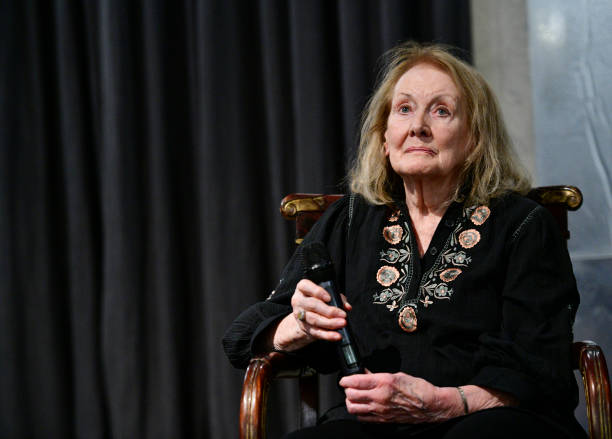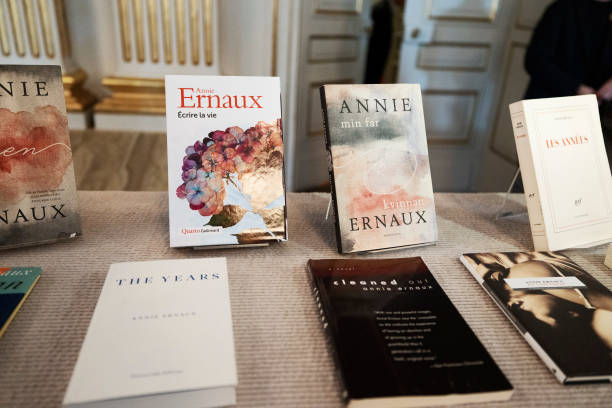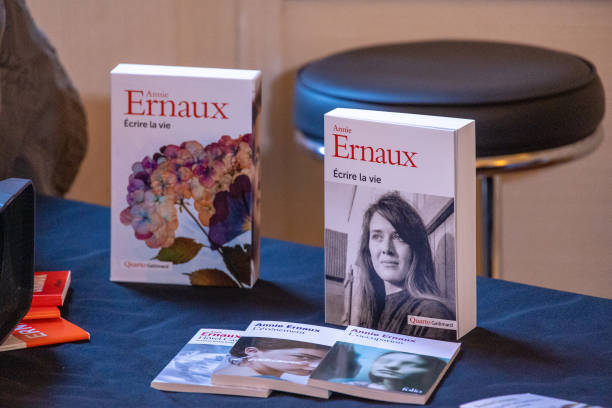
Annie Ernaux: On October 6, 2023, the Swedish Academy announced that French author Annie Ernaux had been awarded the Nobel Prize in Literature “for the courage and clinical acuity with which she uncovers the personal roots, estrangements, and collective restraints of collective memory.”
Ernaux, who was born in 1940, is known for her autobiographical novels, which often explore themes of gender, class, and identity. Her work is characterized by its honesty, precision, and unflinching gaze.
Annie Ernaux Nobel Prize
Annie Ernaux contó su experiencia de aborto clandestino porque el silencio es una forma de oscurecer la realidad de las mujeres.
Feliz y combativo día de acción global por el acceso al aborto legal y seguro 💚 pic.twitter.com/8aw2IJBick
— Irene Montero (@IreneMontero) September 28, 2023
In her Nobel Prize lecture, Ernaux spoke about the importance of memory and literature. She said, “Memory is not simply a matter of individual recollection. It is also a collective construction, shaped by the social and political forces of our time. Literature can play a vital role in challenging official narratives and giving voice to the marginalized.”
Ernaux’s work is a powerful reminder that our personal stories matter. They are the foundation of our collective memory and our shared humanity.
Annie Ernaux Early Life and Work

Ernaux was born in Yvetot, Normandy, France, to working-class parents. She was the first in her family to attend university, where she studied literature and modern languages.
After graduating, Ernaux worked as a teacher and a journalist. She began publishing novels in the early 1970s, but it was not until the 1980s that she gained wider recognition.
Ernaux’s early novels, such as “Empty Cabinets” (1974) and “Ce qu’ils disent ou rien” (1977), are largely autobiographical. They explore her childhood and adolescence in Yvetot, as well as her experiences as a woman and a working-class person.
In the 1980s, Ernaux began to experiment with different literary forms. She published two biographical novels, “La Place” (1983) and “Une femme” (1987), which tell the stories of her parents. She also wrote a number of essays and theoretical works on autobiography.
Annie Ernaux Books

Ernaux’s later novels are more experimental in form and style. They often explore the relationship between the personal and the political, and the ways in which individual memories are shaped by collective narratives.
Some of her most notable later novels include:
“Passion Simple” (1991): This novel is a meditation on love, desire, and obsession. It is based on Ernaux’s own experience of falling in love with a married man.
“A Simple Story” (1991): This novel tells the story of Ernaux’s father’s death. It is a moving and intimate exploration of grief and loss.
“Happening” (2000): This novel tells the story of Ernaux’s illegal abortion in 1963. It is a powerful and unflinching account of the physical and emotional realities of abortion.
Annie Ernaux Nobel Prize Win

Ernaux’s Nobel Prize win is a recognition of her significant contributions to literature. She is one of the most important French writers of her generation, and her work has had a profound impact on contemporary literature.
Ernaux’s win is also a victory for women writers and for French literature. She is the 17th woman to win the Nobel Prize in Literature, and the first French woman to win the prize since Gao Xingjian in 2000.
Annie Ernaux is a worthy recipient of the Nobel Prize in Literature. Her work is characterized by its honesty, courage, and literary merit. She is a writer who gives voice to the marginalized and challenges official narratives.
Ernaux’s work is also a powerful reminder of the importance of personal stories. She writes about her own experiences, but her work also speaks to the collective memory of France and the world.
Ernaux’s Nobel Prize win is a celebration of literature and its power to change the world.
Annie Ernaux Work

Ernaux’s work is often described as “autobiographical,” but she prefers to use the term “autofiction.” This term suggests that her work is a blend of autobiography and fiction. Ernaux often uses fictional devices, such as dialogue and invented scenes, to tell her stories. However, her work is always grounded in her own personal experiences.
Ernaux’s work is also notable for its use of language. She writes in a clear and concise style, and she is not afraid to use direct language to describe her experiences. Her work is often sexually explicit, and she does not shy away from difficult topics such as abortion, incest, and suicide.
NOTE: Do check Drake Is Back! New Single ‘8 AM in Charlotte’ Heralds Forthcoming Album